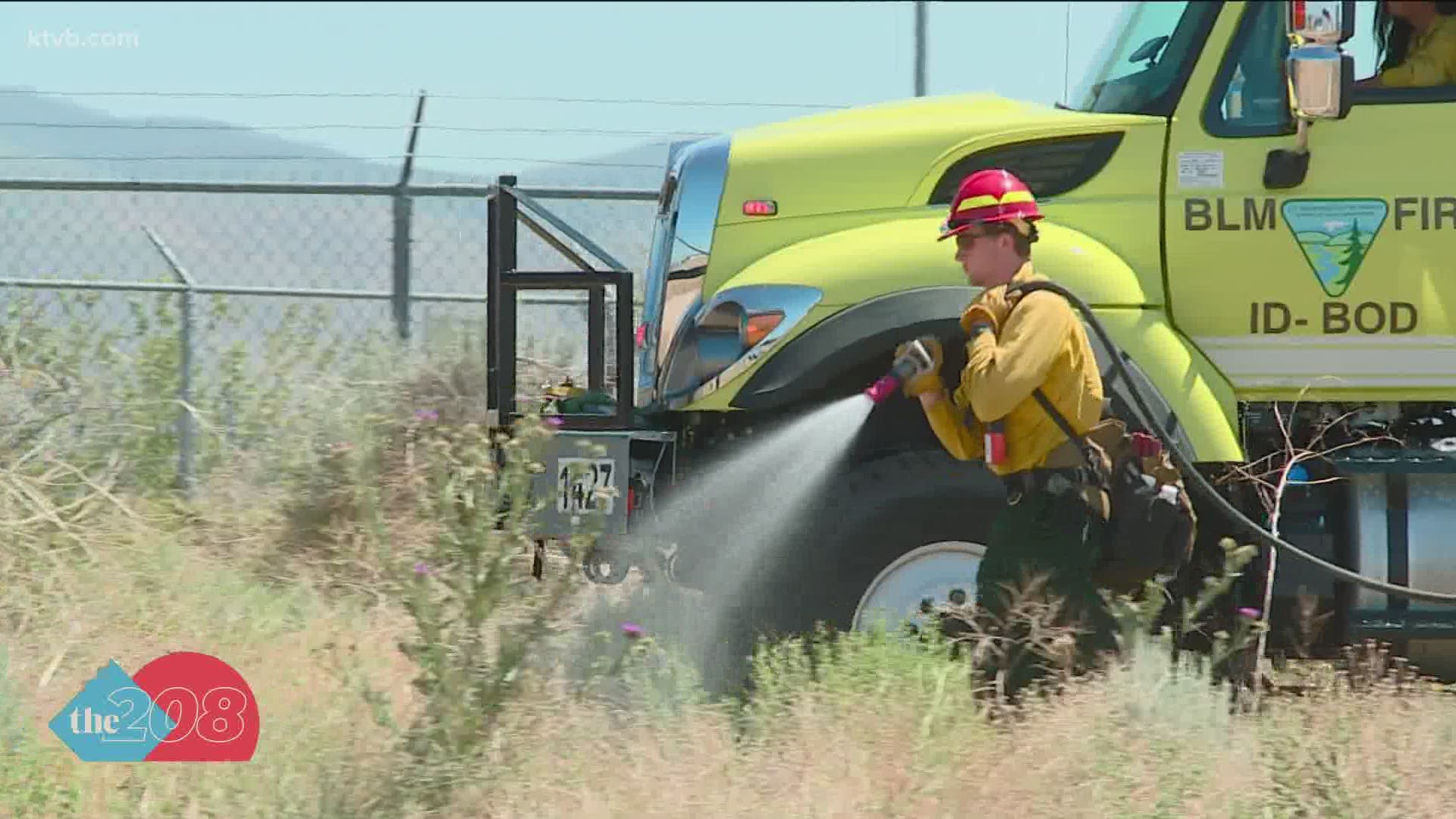BOISE, Idaho — U.S. wildfire managers have started shifting from seasonal to full-time firefighting crews to deal with what has become a year-round wildfire season as climate change has made the American West warmer and drier. The crews also could remove brush and other hazardous fuels when not battling blazes.
The U.S. Bureau of Land Management said Thursday that it's adding 76 firefighters and support personnel to its 3,400-person firefighting workforce.
Additionally, 428 firefighters will change from part-time seasonal work to either full-time seasonal or permanent work with health and retirement benefits. Ultimately, the agency wants about 80% of its firefighters on permanently. The rest would be seasonal, many of whom are college students who return to class in the fall.
It comes as climate change is making weather more extreme and wildfires more frequent and destructive, scientists say. A historic drought and heat waves have made wildfires harder to fight in the West.
"As a nation, we are coming to grips with the effects of climate change on fire activity," said Grant Beebe, the land agency's assistant director of fire and aviation. "The fire activity we've experienced in 2021 and previous years reinforces the need for transforming a sizable portion of our largely seasonal fire organization to permanent positions, though widespread change will not happen overnight."
The land agency received $13 million in its 2021 budget for workforce transformation that is being used to add the 76 firefighters. The U.S. Interior Department, which oversees the Bureau of Land Management, received $29 million overall to carry out a plan for transforming its firefighting workforce.
The goal is to attract a diverse group of employees who have the potential to become the bureau's future leaders, said Nada Culver, deputy director of policy and programs.
The land agency said it plans to keep shifting more workers to permanent status in line with the Biden administration's priorities. The administration last month raised starting pay for federal wildland firefighters to at least $15 per hour, from about $13.
On Friday, 85 large fires and complexes of blazes were burning in 12 states, according to the National Interagency Fire Center. About 25,000 wildland firefighters and support personnel were fighting the flames.
So far this year, more than 42,500 wildfires have scorched 7,850 square miles, the center said. To date, the area burned this year is slightly under the 10-year average.
The U.S. Forest Service also has firefighters, and city and state employees fight wildfires. Federal agencies have other workers whose primary job isn't fighting wildfires but who can choose to help out by qualifying for some aspect of firefighting.
Watch more on wildfires in the West:
See all of our latest coverage in our YouTube playlist:

